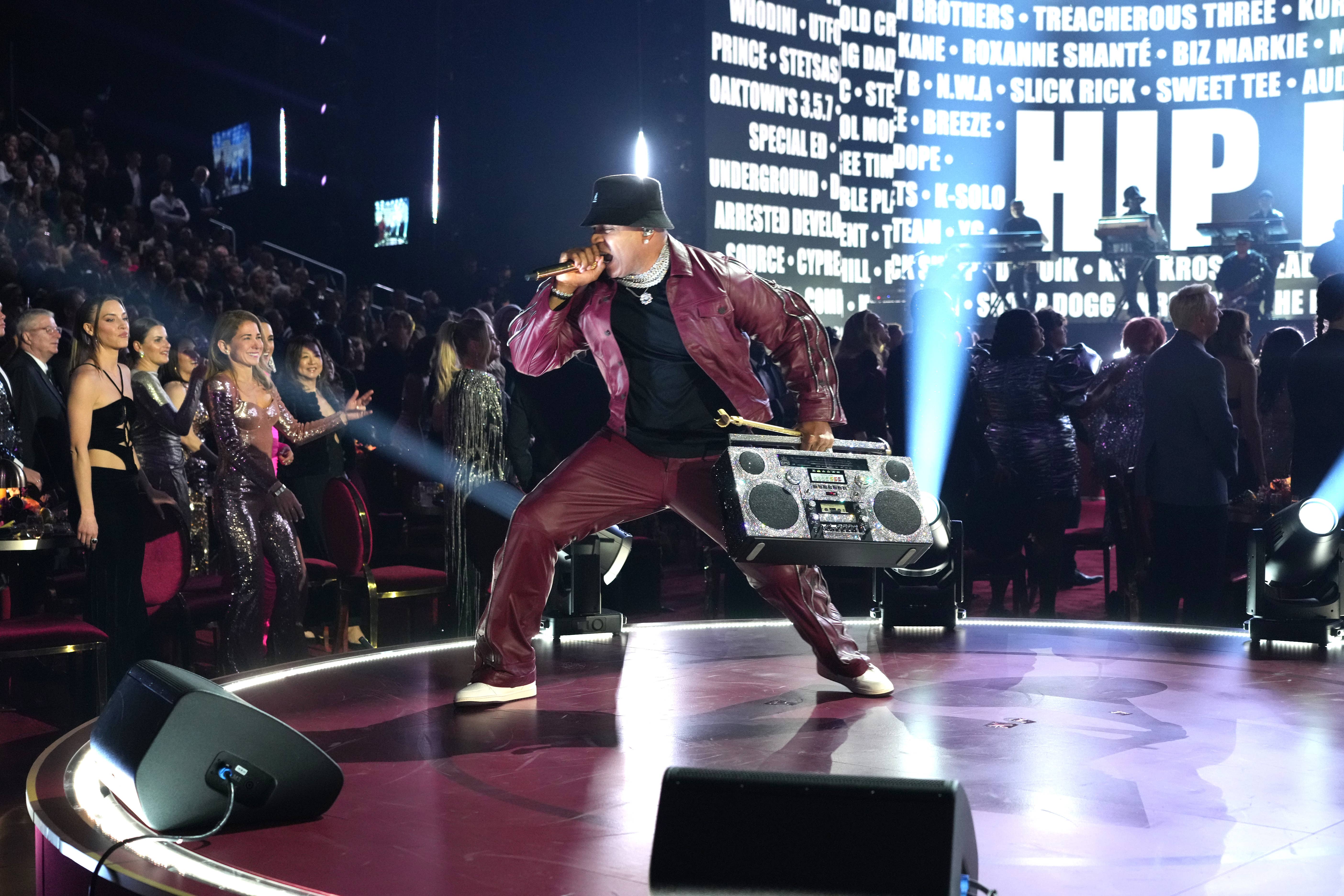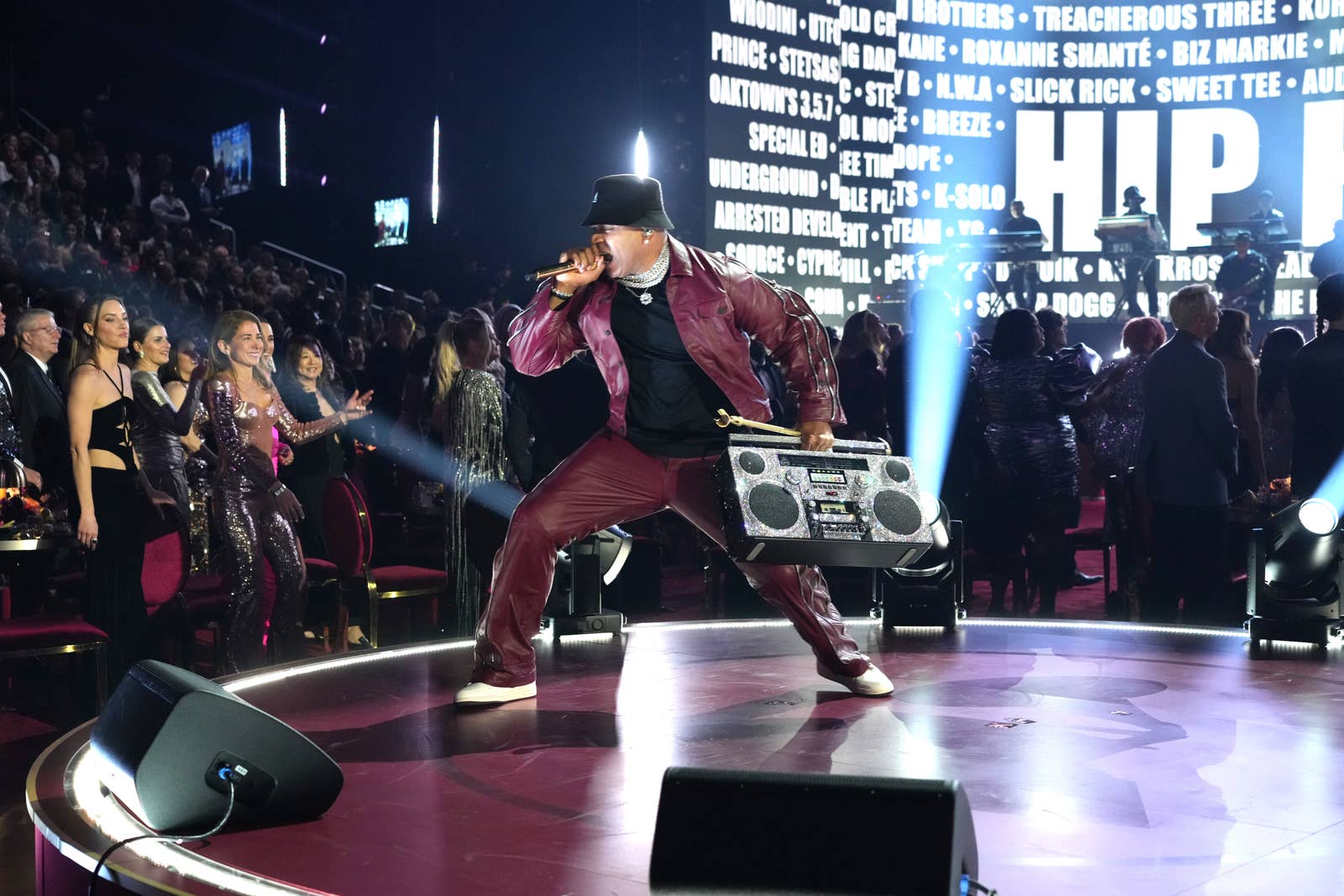
“We could really climb Mount Fiji right now with no problem,” Questlove says. We’re chatting over Zoom on the first night of rehearsal for The Recording Academy’s Hip-Hop 50 Tribute performance at the Grammys. “My first version was almost closer to kind of like 18 [minutes],” he pauses. Actually, “I think it was damn near 20 minutes. Because it’s like, how can you tell a 50-year story and cover every genre?”
The answer is: you can’t. The segment took six weeks to plan. Final run of show was decided a week before go-time. And the final, final run of show was a reminder that any and all plans can wither on live TV. Lil Wayne, who smoothly performed “A Milli” several times at rehearsal on Saturday, and Future, who sported an all-red ‘fit and balaclava that night, were no-shows the day of the show. The latter’s absence explains the lack of young(er) representation in the third chapter of the segment, too. Still, those who did show up on Sunday, performed like they knew what the moment meant—and the crowd reacted accordingly. The segment (one of the longest in Grammys history) was the most positively crowd-received moment of the night, bringing the Crypto.com Arena to their feet at the sight of every new talent appearance—each fleeting enough to feel like a flashing memory.
“I’m really happy that there’s 60-year-olds here because there’s a lot of 54-year-olds who aren’t here,” says Questlove, reflecting on pioneers and rising acts who have been murdered or dead. “There’s a lot of 27-year-olds who aren’t here. A lot. And so the likelihood of us being here for a 100th anniversary… it might not happen. This is the one that you have to make count, so I’m not wasting a second of it.”
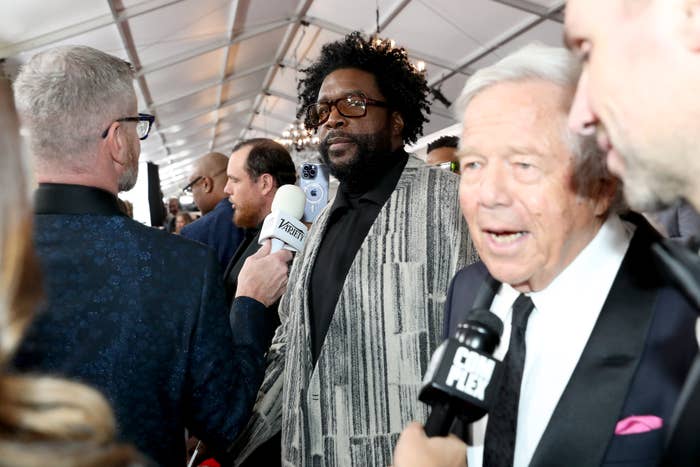
And it was momentous indeed. In an effort to cover the 50 years from New York in 1973 to this current, evolving iteration of hip-hop and its sub-genres, the segment was divided into three chapters, from inception (via Run DMC, Grandmaster Flash, Public Enemy, Salt-N-Pepa, Method Man and more) to its foundational (very fun) experimental 20s and 30s (via Missy Elliott, Nelly, Busta Rhymes and more), to a few of its present pillars (Lil Baby, GloRilla and Lil Uzi Vert (who wasn’t a part of the original lineup, but joined the performance day-of). Like a rapid flip through a tightly packed retroviewer, each 30-second to minutelong blip of a song brought back a memory for the well-versed hip-hop listener. The flow was anchored by narration and transitions from LL Cool J and Black Thought. And, if it felt like a tease or a live rapid-fire-length trailer, that’s because it kind of was.
“We’re having a hip-hop special presented by the Academy that will be filmed and performed and taped on August 11th and broadcast,” Recording Academy CEO Harvey Mason Jr. tells Complex. He also shares that during hip-hop’s actual birthday month, The Recording Academy will expand on her impact with “an over two-hour special exclusively about hip-hop and history and the impact and what it’s done for business and politics and culture and religion, just society at large, not just about the music.” Both, he says, will live across the Viacom ecosystem.
Hip-hop and its constituents have had a long and complicated history with the Grammys. Questlove reflects on the shift from the first year the genre was recognized by the establishment in 1988 to now, saying: “For years we’ve been a bridesmaid and not a bride, and the second we get to be a bride, it [was] off camera. But frankly, that was an old era,” he says. After 20 years of being part of The Academy, Quest is the most hopeful he’s been.
“Harvey’s putting his creativity and his money where his mouth is,” he says of the first Black CEO of the Recording Academy. “Basically, it’s like now that he has a seat at the table, he’s enlisting the right people to get the right people to sort of make it right.”
It was the first big act of the Academy’s new era—the first under new leadership and a further diversified membership body. If anything, it showed that we’ve both come a long way, and still have a long way to go. One of four rap categories are presented on the main stage and a rap album hasn’t won the highly coveted Album of the Year award since 2004 when OutKast won for Speakerboxxx/The Love Below (Lauryn Hill was the first rap artist to win in 1999, for The Miseducation of Lauryn Hill). And, still, they are one of only 11 Black artists/duos to have won the award in the Grammys’ 65-year history.
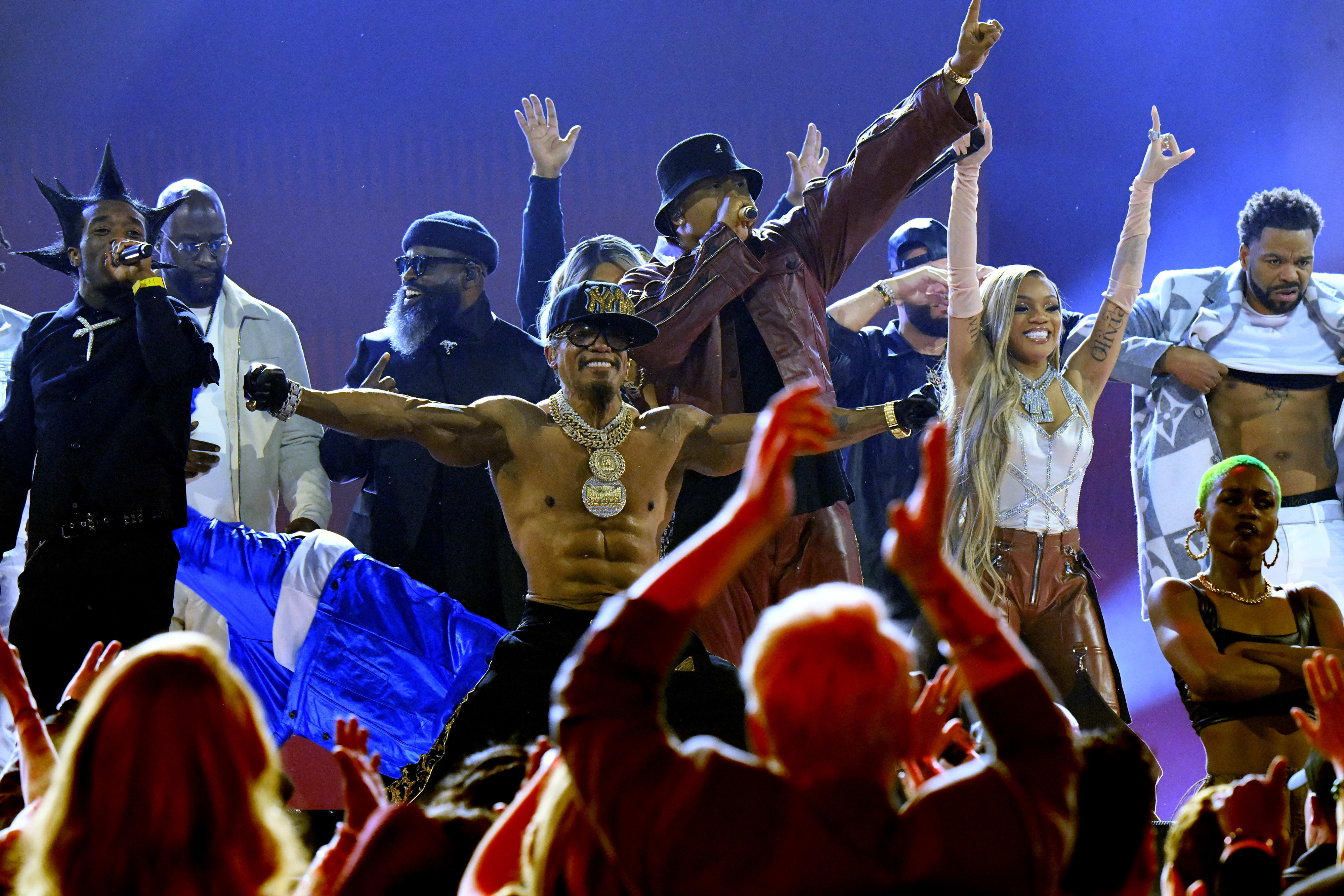
“For the last 50 years, we haven’t always as an Academy, done everything right when it comes to honoring the genre. So this year, especially being that it is the anniversary and also being that I’m now the CEO of the organization, I want to make sure that we are being respectful and being accurate in the way we represent and honor Black music and hip-hop specifically.”
“For years we’ve been a bridesmaid and not a bride… but frankly, that was an old era.”
Day 2 (of 3) of rehearsals fills the air with expectancy and unexpected ease. It’s the day before the Grammys and talent is rolling in. The OGs are the first to arrive, exhibiting refreshing professionalism. DJ Khaled—who was not a part of the tribute but a master of self-insertion and likely on site for the “God Did” finale moment—rolls in from the Roc Nation Brunch, too. There are over 100 tracks represented (however briefly), and there’s a lot to get through.
Collins paces around the floor with enviable tranquility at Saturday’s rehearsal—an unexpected trait from someone who’s not only producing 18 segments at the Grammys but is also very much working on Rihanna’s Super Bowl Halftime Show, which is only a week later. He sports a white Erykah Badu hoodie that says “Hip-Hop is bigger than the government.” How does he do it all? “It’s never just me, it’s always about building out a strong team,” plus “You know, [I] drink a lot of water,” he says.
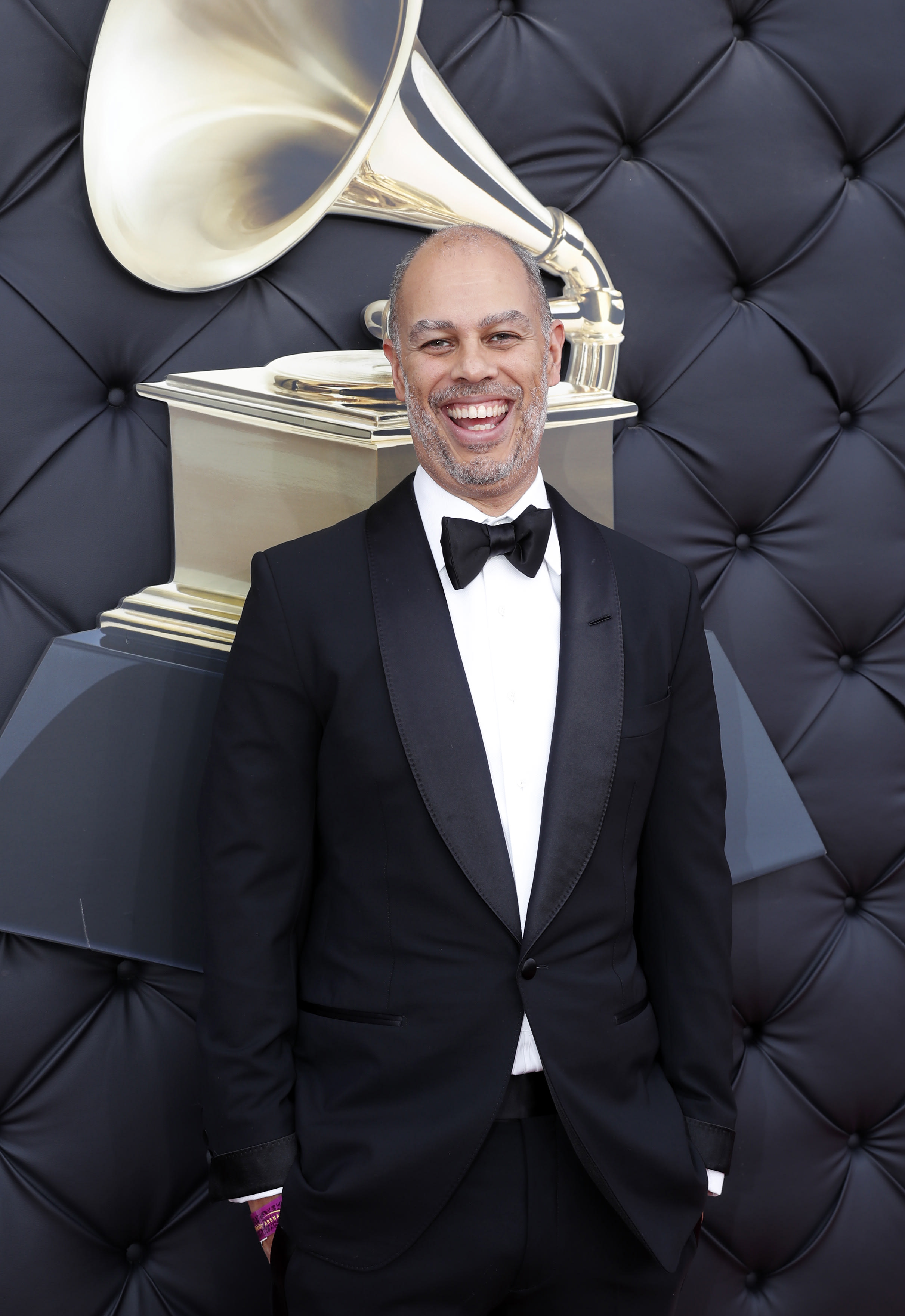
Lil Baby smiles ear-to-ear in a brief exchange with LL Cool J at center stage at one point, and Glorilla shakes Queen Latifah’s hand wide-eyed on the main stage a few minutes later. It’s a merging of generations subdued with mutual respect. But, mainly, it was a moment to honor those who set the foundation for the rising artists in the genre today.
“She went from princess to a queen to a supreme being that serves as our north star,” Queen Latifah says as she walks from stage left to center before kindly but firmly asking the teleprompter manager to slow and steady its pace. The “Unity” rapper, dressed in all-black sweats and a cap, was one of the first to arrive and will be one of the last to leave, but maintains the same grace as she continues: “Some say we’ve created a monster to have taken it this far. But if I’m a queen, then there’s one thing I know from all these years we’ve spent together: she knows no bounds. Hip-hop will live everywhere, forever.”
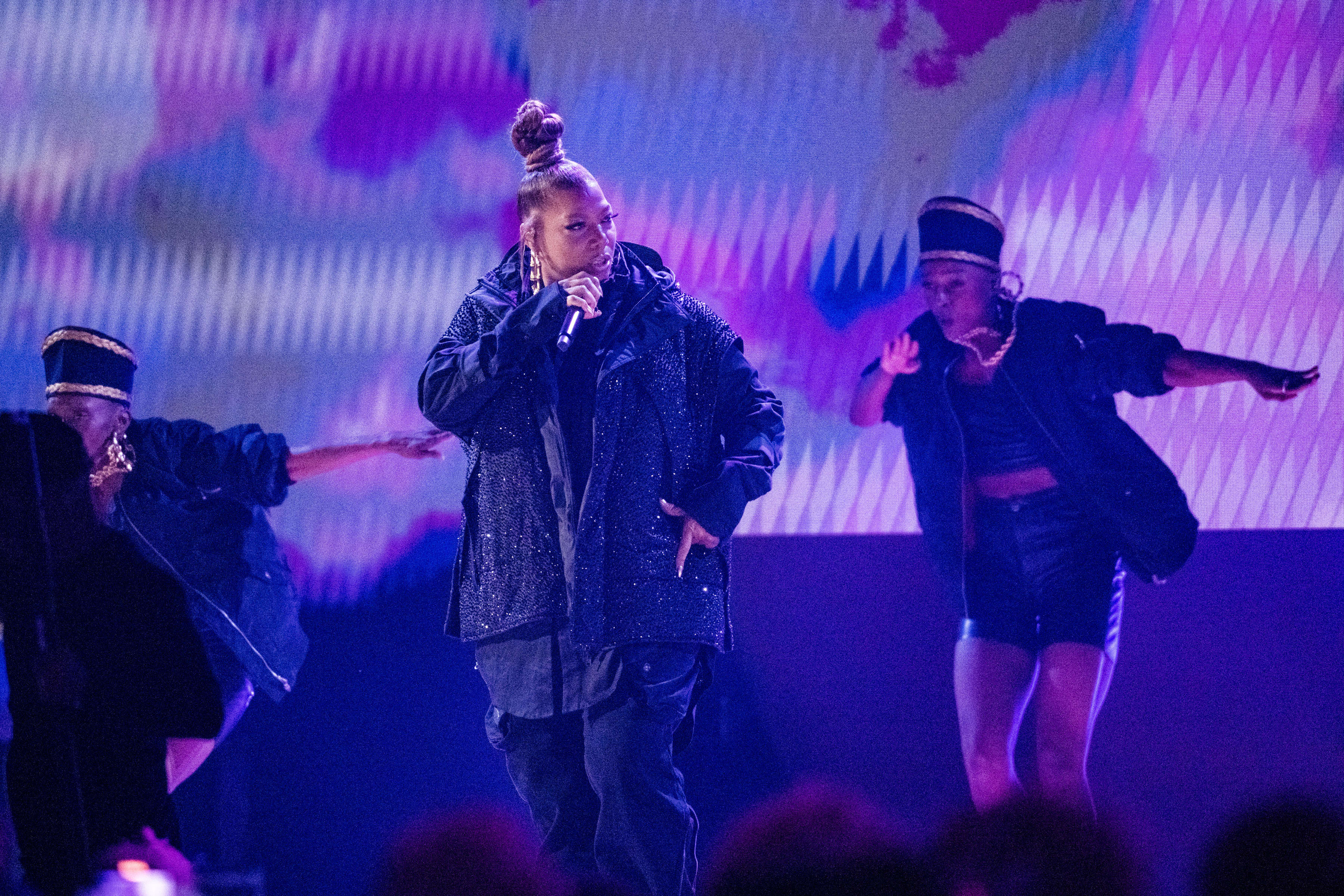
The “she” in question is hip-hop itself. Somewhere in the ideation process, Questlove decided to humanize the genre and make the segment a literal birthday celebration—and they went all out.
The “they” in question includes Mason Jr., who tapped Questlove to curate the show. Jesse Collins, who Quest then tapped to executive produce it; he’s no stranger to putting on indelible live performances as he’s executive produced a few unforgettable hip-hop moments (from Beyoncé and Kendrick Lamar sharing a stage in 2016 to the iconic hip-hop moment at last year’s Super Bowl); Fatima Robinson, the renowned choreographer best known for her work on Aaliyah’s final masterpiece “Rock The Boat,” and Shawn Gee, president of Live Nation Urban, who rounded out the group.
“He sent me a text back in December and said ‘Hey, would you be interested in curating a hip-hop 50 performance on The Grammys.’ My text back to him was ‘Hell yeah.’ And it all came together from there,” Collins shares of his first exchange with The Roots drummer. “Quest always has amazing ideas and they always come from a place of musical authenticity.” Once they agreed, Collins started making calls. The two have known each other since 2016 when they worked together on Prince’s BET Awards tribute, so alignment on the vision was easy. But chopping the vast list of hip-hop greats to execute their goal within a 12-minute time limit? Not so much.
“Availability [was also a] factor, you know?… [Snoop] and and Pete Davidson are coaching the Pro Bowl this year in Hawaii.”
But, a tightly packed first quarter and limited availability from artists who have transitioned into other realms, including acting, narrowing down the list was made easy. “Availability [was also a] factor, you know? Like… I didn’t know that Snoop was coaching a football team. Snoop is one of the coaches for the Pro Bowl, him and and Pete Davidson are coaching the Pro Bowl this year in Hawaii.” He laughs and continues, “for a lot of artists, I’ll say between January and March, it is kind of a busy season because of the Super Bowl. And Pro Bowl, and it’s also not only Grammy season, but Oscar season… there’s a lot happening.”
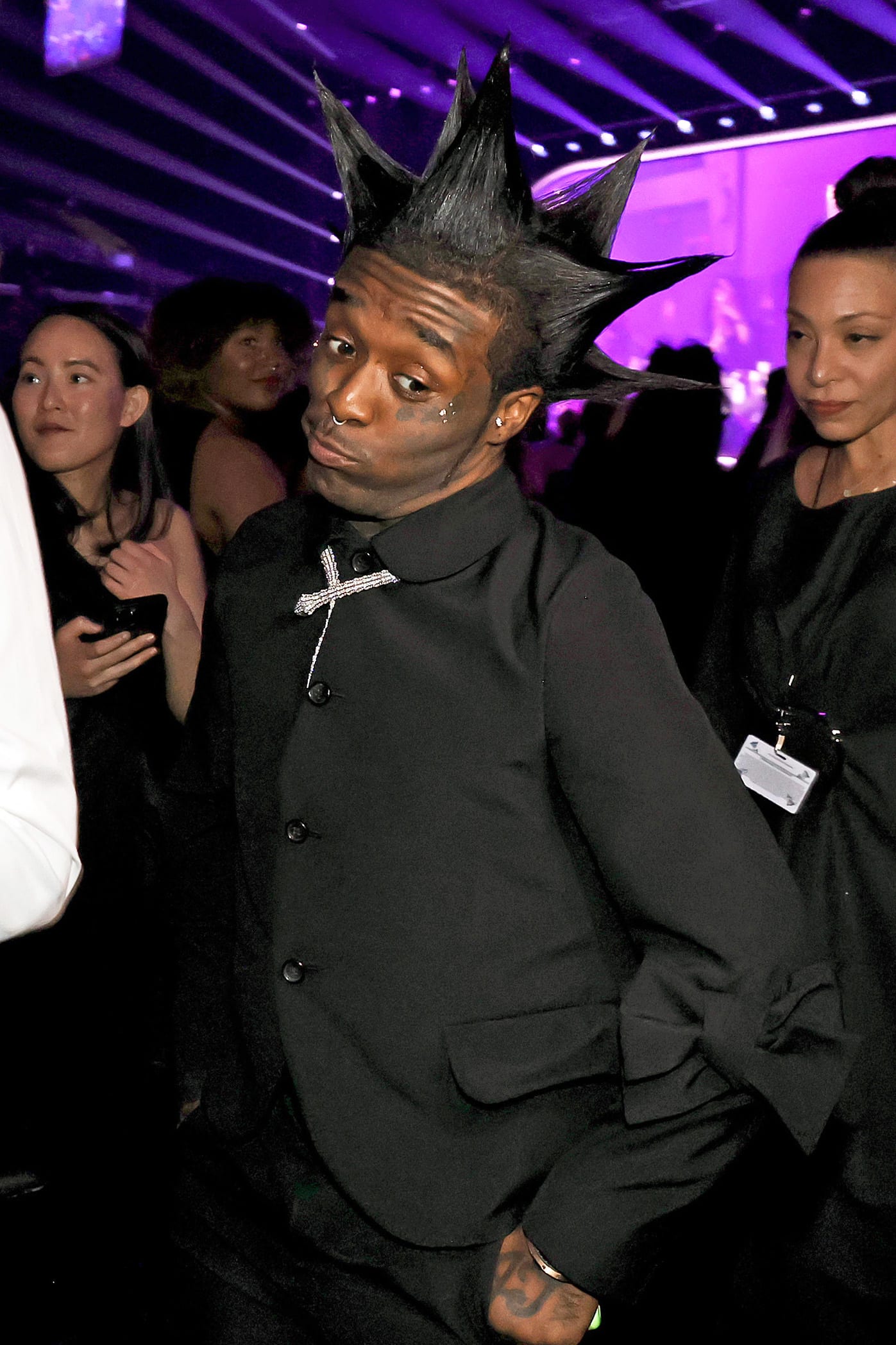
From showcasing classic breakdancing on the streets of New York to the Jersey Club movement taking over TikTok, a lot of ground was covered on Sunday. The latter—although a brief moment in the segment, was a part Quest was particularly excited about. “Usually when I start any project, no matter what I do, I always start with what’s my last 10 percent? What’s the last minute? What do I leave you with? And I was trying to figure out what’s the song that is capturing lightning in a bottle right now.”
“What’s my last 10 percent? What’s the last minute? What do I leave you with?”
The idea to include Lil Uzi’s “Just Wanna Rock” for the closer was a last minute one—well, a two weeks ago type of decision to be exact. “I mean, it’s a revolution… It’s almost surpassing ‘Smells Like Teen Spirit,’” he tells Complex. “There’s [always] that one song that has the ability to almost cause a riot. And I love those songs. I love those songs where you hear it and you realize that you got 10 seconds to either run for cover in the corner, or you’re going to get trapped on the dance floor with a bunch of people moshing with each other.” A glimpse of that energy was felt at the end of the segment when Quest decided to mark that as the soundtrack of a new era.
This is far from the first time that the 52-year-old has been in tune with, and very much a part of building culture. He gets it. Just a week ago, he took to Instagram to share his thoughts on Lil Yachty’s album with a sentiment many can echo: “Shit like this (envelope pushing) got me hyped about music’s future.”
“I hope [this moment] reaffirms that hip-hop is one of the greatest genres of music,” Collins says. “In the end, everybody should know that hip-hop is something that should be respected, appreciated and celebrated.”

